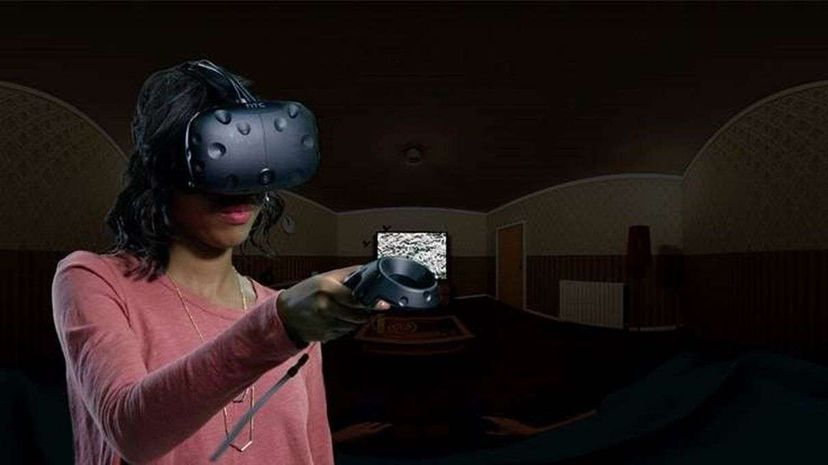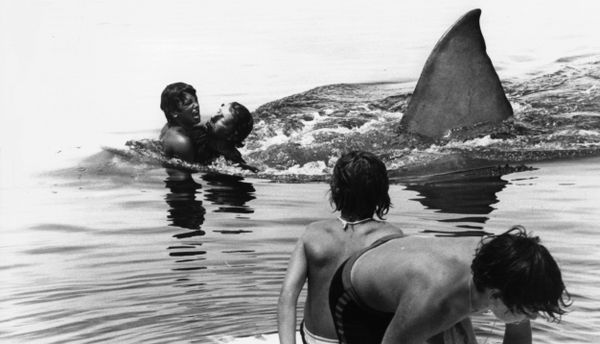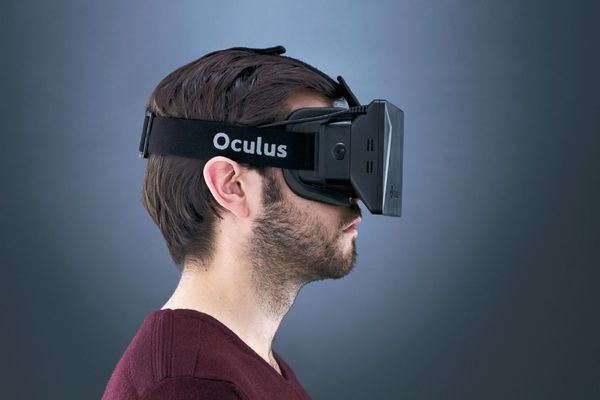
The next big thing in Hollywood is virtual reality. You know: 360-degree, totally immersive, cutting-edge "Minority Report"-type moviemaking.
Right now, VR movies are short films made by little-known filmmakers that have barely any plot. They're run through wires to a helmet on your head or a smartphone strapped to your face. Yet the end product is blowing people's minds.
Advertisement
"VR's definitely the next big platform, in terms of it being able to be a storytelling device. It's 'a' next big thing," says Chad Eikhoff, a director and founder of the 3D animation and virtual reality studio TRICK 3D. "But I don't think it's going to replace filmmaking or game playing. It's going to augment both of those a little bit."
So what's the next step in Hollywood VR? Well, it just might be virtual reality horror, a genre that always seems to live on the cutting edge. After all, what could be better for a scream junkie than being fully immersed in a movie featuring a guy in a hockey mask with a big ol' honking butcher knife?
Who is right behind you ...
The VR Revolution
You've heard of Oculus Rift, the next-gen VR system that's credited with starting the latest surge toward VR acceptance. It started on crowdfunding site Kickstarter and then Facebook bought it for $2 billion. Oculus is teaming with several big-name companies — Samsung, HTC, Sony and Google among them — to bring VR to the masses.
Much of the VR focus has been on gaming. But there are indications that movies may be the future of VR, or at least a big part of it. According to Oculus, about 80 percent of more than 1 million consumers with the Samsung Gear VR (it's powered by Oculus) are using it to look at video.
Moviemakers have noticed. From The Wall Street Journal:
Eikhoff sees the appeal. After 100-plus years of doing films one way — here's the story, right in front of you, and the director will tell you where to look — VR opens up possibilities that can hardly be fathomed. With VR movies, there's a 360-degree scene where you, the viewer, choose where to look, where to concentrate and what to ignore.
"The big thing VR brings that movies don't — and takes to the next level with gaming — is immersion and presence and a sense of being in the space," Eikhoff says. "But what that does ... is it totally changes the dynamic."
You can get a feel for the possibilities with tons of VR movies on YouTube, and you don't need all that fancy of a headset to do it. All you need is a smartphone and an app. A Google Cardboard VR headset can be had for $15.
Why Horror?
Young Wes Craven and John Carpenter wannabes already are working with tech experts to immerse viewers in something that they, almost literally, can't take their eyes off of. You can close your eyes during a VR movie, or take off your headset and get the heck into the light. But turning your head on VR horror just brings new angles to the blood, guts and overall good times.
That may be the genre's biggest appeal.
A VR outfit named HoneyVR, calls virtual reality "... absolutely the scariest entertainment medium ever conceived ... Virtual reality horror, when well done, is truly terrifying. Stereoscopic 360 video gives you nowhere to hide — there's no comfortable separation like when watching a horror film on your TV screen. Rather, with VR horror you are fully immersed by the perceived threats and it can be jarring."
Another plus for VR horror films: You don't need to be Spielberg to make it work. You don't need big-name actors, either. Let's face it: You don't even need a very good script.
Hollywood has known that for years. A 2013 New York Times study showed that horror movies made about six times what they cost. They don't bring in the overall money that big-budget comedies and action flicks do. They certainly don't snag the awards or critical acclaim.
But for sheer return on investment, horror is tough to beat.
"I think there's a place for any genre in VR. Horror is low-hanging fruit in any format," says Eikhoff. "There's definitely people who are going there. It can kind of push it potentially, make something that would be normally just an entertaining horror film too much for somebody."
With VR, it probably makes sense to start with the low-hanging fruit. Spielberg and Scott may be able to throw big bucks at it, but for fledgling VR filmmakers, the success of the format is still a great unknown. There are a ton of technical and storytelling hurdles to overcome, not to mention the challenge of selling what is an essentially a solo experience — it's hard to get busy with the honey rocking a VR headset — to a movie-loving public.
Plus, as Eikhoff points out, it has taken more than a century of regular moviemaking to get film to where it is now. VR has a long way to go.
Whatever its future, VR is here now. The possibilities for the Next Big Thing exist.
Now all we have to do is get past that guy with the butcher knife.
Advertisement

